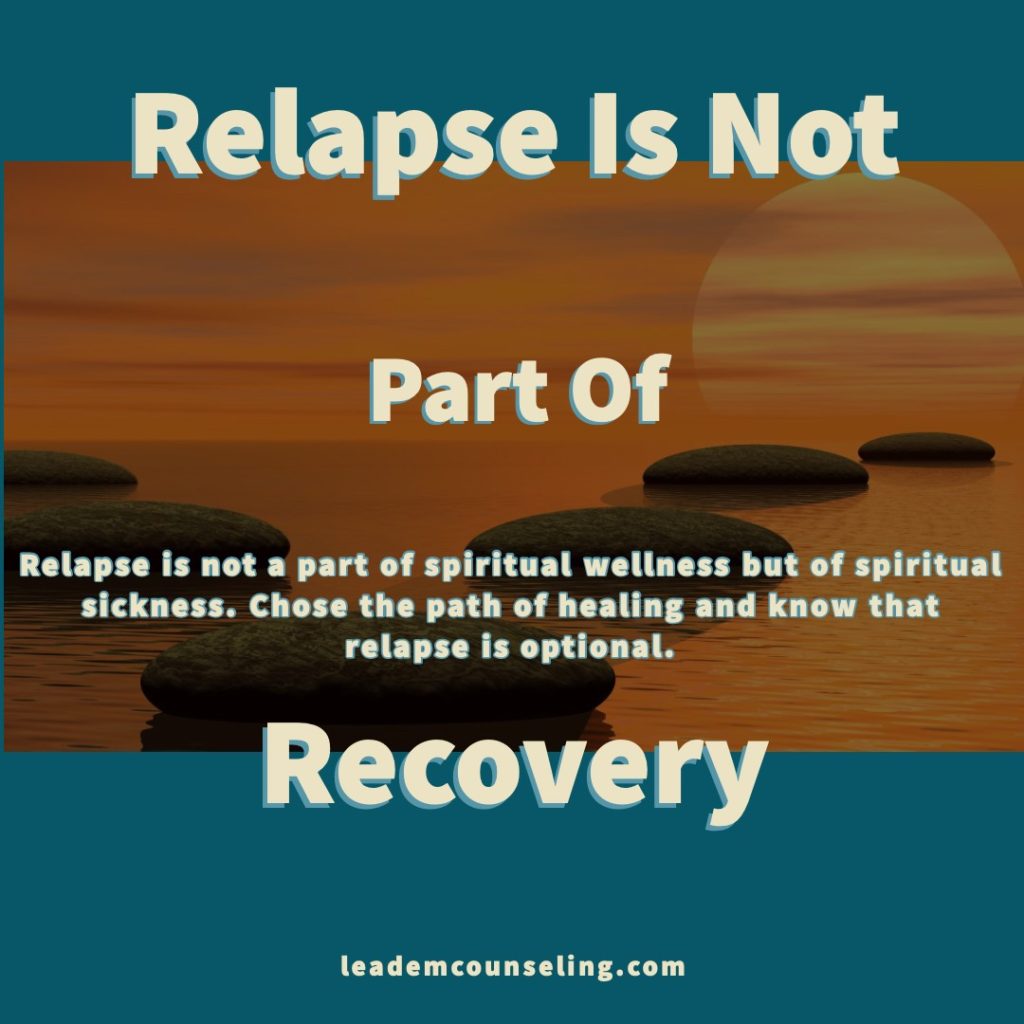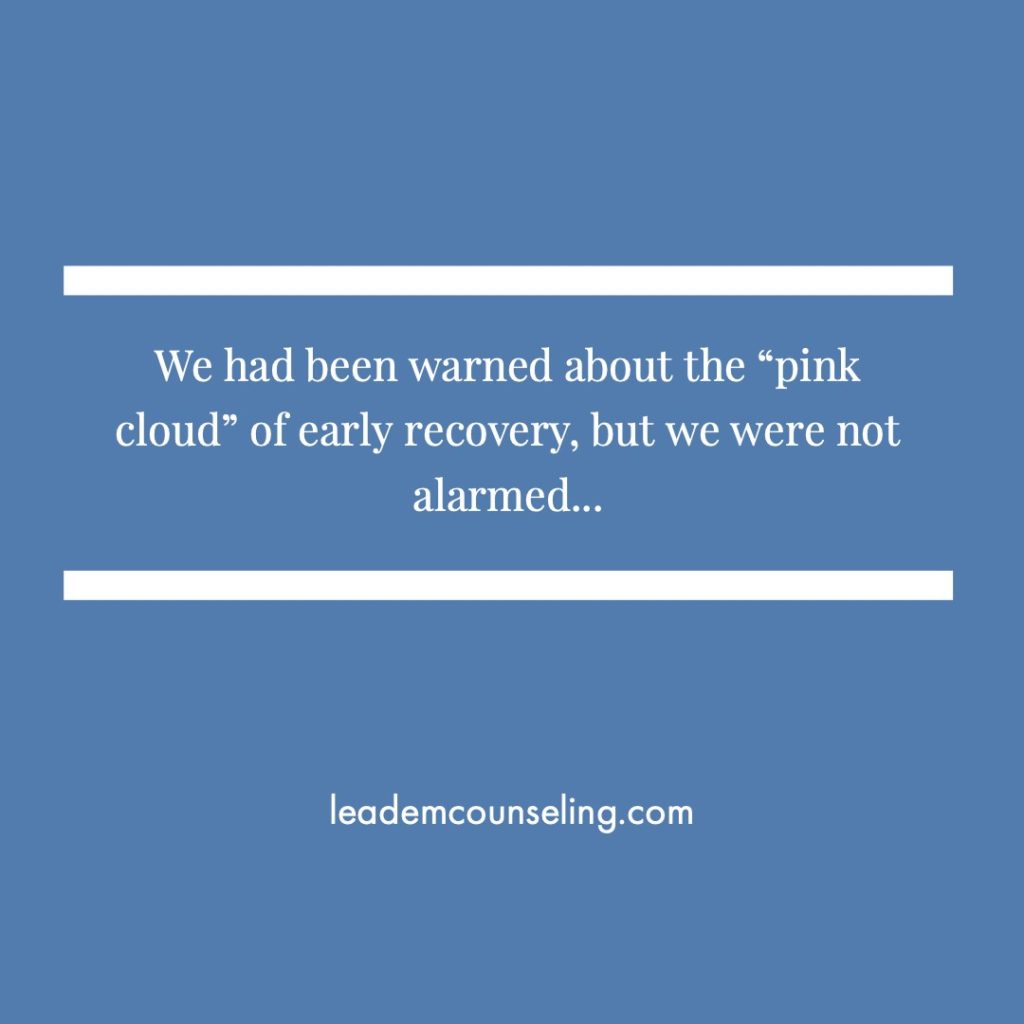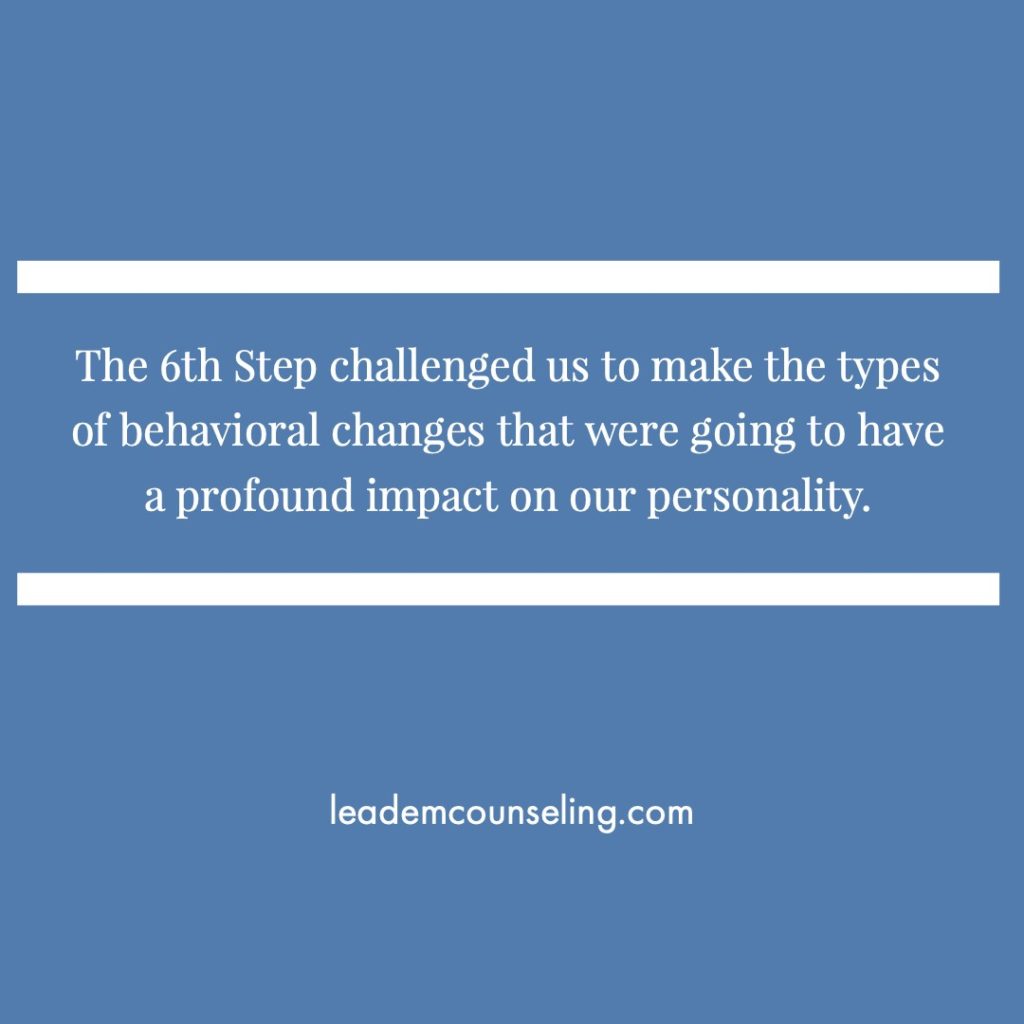
This article and others in the Risk of Relapse series are intended as an introduction to the wisdom you will find in the course of completing your 6thand 7th steps. Articles in this series are designed to support the recovery efforts you have already undertaken in your relationships with members of your support group and in your growing relationship with a “Higher Power.” They are written as a resource for the universe of people engaged in recovery from the tragedy of an addictive illness whether the costs you endured were in your role as an addict or a co-addict. The examples given throughout the series are offered as a small sample of the possible manifestations to be found in the various addictive disorders. Although our symptoms might be different, the progressive nature of the illness we share is a common bond. The 12 Steps of Alcoholics Anonymous have been adopted by over 50 self-help fellowships and the number is climbing every year.
The information provided in this series can be easily adapted to accept the symptoms you bring to the 6th step experience, but it is not intended to offer examples that are specific to every addictive illness. You are invited to contact us at www.leademcounseling.com if you have difficulty making the adaptations you need to adequately address your particular recovery needs.
Additionally, it is important to note that many of the 12 Step fellowships offer printed material that can help you in the process of adapting our model to your specific recovery plan. Many of the citations in this work will direct your attention to the material first published by Alcoholics Anonymous. An effort to include even a small cross section of the entire collection of 12 Step recovery literature would be exhausting and the writing of many other fellowships would still be ignored. We encourage you to build your own library of recovery materials and avoid limiting yourself to any one philosophical or psychological school of thought. The nation’s libraries and bookstores maintain a treasure trove of resources to help you to develop the interpersonal skills you will need to develop and maintain freedom from your addictive illness. We have developed and maintained a willingness to go to any lengths to maintain our freedom from addiction, but it was not always that way. So, let us begin this exploration.
Sober, But Now What?

Initially, freedom from our addictive behaviors resulted in many blessings. We no longer had to live in guilt and shame. Sadness was replaced by joy. Fear gave way to hope and resentment faded in the light of our newfound gratitude. All was well and nothing could darken our outlook – or so we thought. We had been warned about the “pink cloud” of early recovery, but we were not alarmed because we had been taking the 3rd Step on a daily basis. We had completed a soul-searching inventory with our sponsors in the 5thStep and we had begun to feel free. However, in spite of these efforts, the silver lining of our recovery was losing its luster. We found ourselves returning to the negativity and depression of our active addictions. This dark cloud would have made sense if we were still engaged in our addictive behaviors, but those days were long behind us. The problem, we learned, was that our recovery efforts had stalled after the 5th Step.
We were still attending meetings on a regular basis, reading recovery literature, and practicing daily prayer and meditation. We had what appeared to be strong programs, but we had unknowingly wandered into complacency. Our perspective had changed from one in which we viewed life as a glass that was half full to viewing one that was half empty. We had not been lazy or unwilling, just emotionally immature. We had assumed that God would remove our shortcomings in the 7th Step with little work on our part. The work that we had ignored was in the Sixth Step. We would need to make changes, but we did not know where to begin. The following chapters represent the path that we took. We hope that it guides you from the darkness to the light.
Upon review of the preceding paragraphs we paused for deep reflection about the tone we were using to introduce you to this guide. We wondered to each other whether it was wise to introduce you to the next part of the recovery journey with such ominous language. We concluded that we would leave it as it was written because it represented a time in our lives and marriage that was gray and foreboding. There was a great deal of emotional challenge in our lives that we were trying to cope with through the use of our defects of character. We had given birth to a very sick child who many doubted would survive to his first birthday. He had a loving God and great medical care to aid in the healing of his defective heart. We had the same God and 12 suggested steps, but we had only completed the first five in a meaningful way. We had both asked our Higher Power to remove our defects as we misunderstood the 7th Step to ask of us. We had done little to address the behaviors associated with our defects so our Higher Power was going to have to wrench those behaviors from us. He would not remove our defects against our will. He had given us free will and we had decided to hold onto the defects that appeared to be working for us. They were not and we were miserable. We survived the painful journey not because our son’s heart was patched but because we had decided to remove those behaviors so our Higher Power could remove the defects to which they were tied . We were spared the fate of many of our fellows in recovery who had succumbed to the pressure of living life and relapsed after their defects failed to insulate them from the pain. We are sober today, in part, because we remembered the Steps we had forgotten.
Remembering the Forgotten Steps

We hope the articles in this series serve as an inspiration to you to dig in and go to work on this very important sixth step in the recovery process. We fully support the recovery adage we learned as newcomers: The first five steps are largely a history lesson and that anyone who had followed our journey very closely would have known what is revealed in steps prior to the sixth step. It was further explained that the 6thStep was the place where all the change was going to begin. We were pretty sure that the 1st step was quite a hoot and the journey to the 3rd was nearly as harrowing as the process of completing our 4th and 5th steps. All of it had been hard work but as the old timers said, “it was all history”. The 6thStep challenged us to make the types of behavioral changes that were going to have a profound impact on our personality. And to be clear, much of our characters needed an overhaul.We wish you the best in your journey to character change.
We hope you enjoy this introduction to our work.








1 Comments | Post Comment
taking the journey to change my character – i am tired of hurting.
Leave a comment